Pichler & Traupmann Architects
Museum of Bavarian History
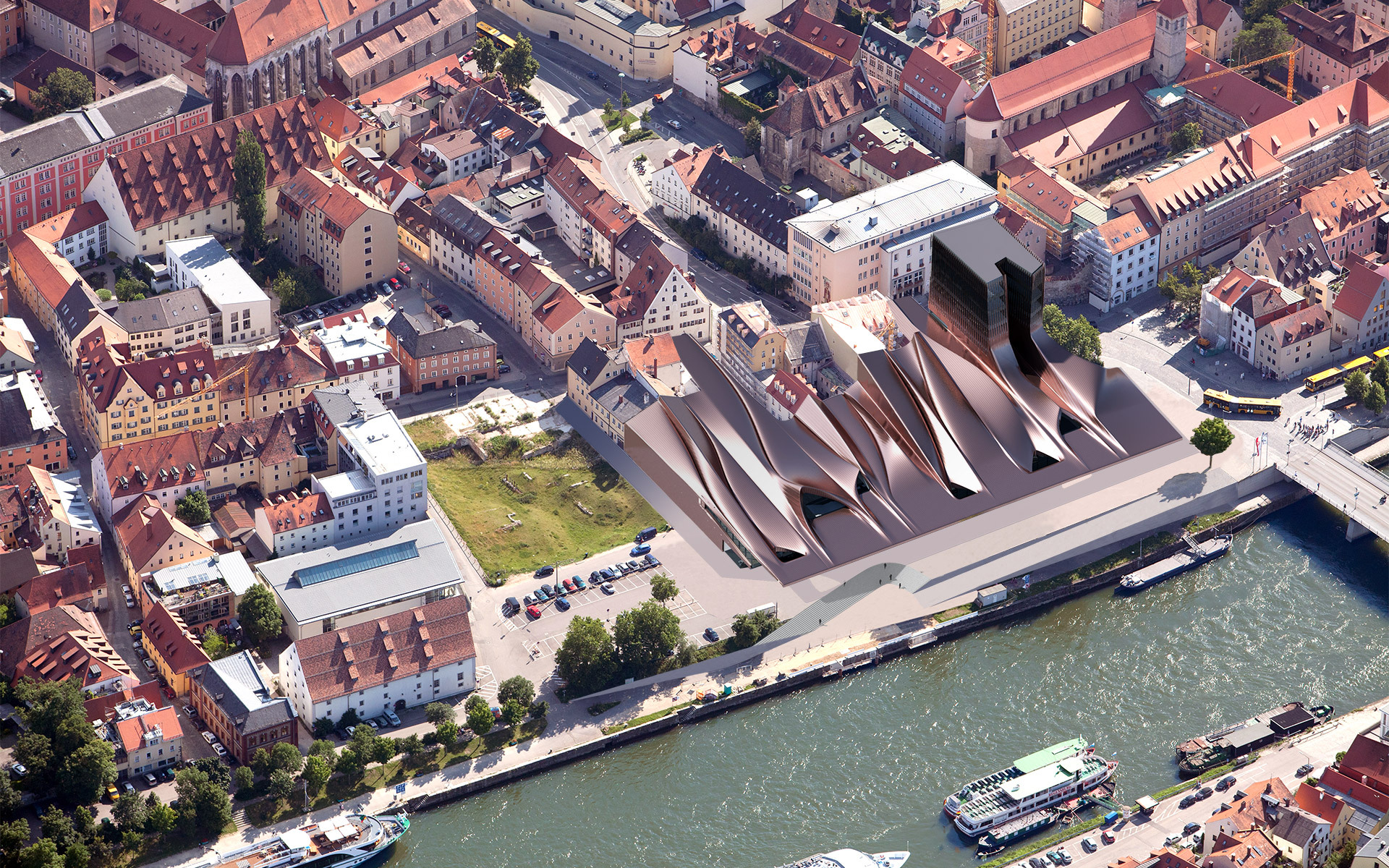
Year
2013
Venue
Regensburg
State
Competition
Category
Culture
Size
11.021 m²
Year |
Venue |
State |
Category |
Size |
|---|---|---|---|---|
2013 |
Regensburg |
Competition |
Culture |
11.021 m² |
Year
2013
Venue
Regensburg
State
Competition
Category
Culture
Size
11.021 m²
What we regarded as important
… to allow the roofscape of the old town in Regensburg to flow into the building
… to develop the building from the town’s finely chiselled morphology, so to speak allowing it to grow out of this morphology
… to incorporate the scale of the town as a whole but also the development structure of the particular area under consideration
… to respond both to the mighty flow of the Danube, along whose banks the silhouette of Regensburg rises, and to the shipping traffic
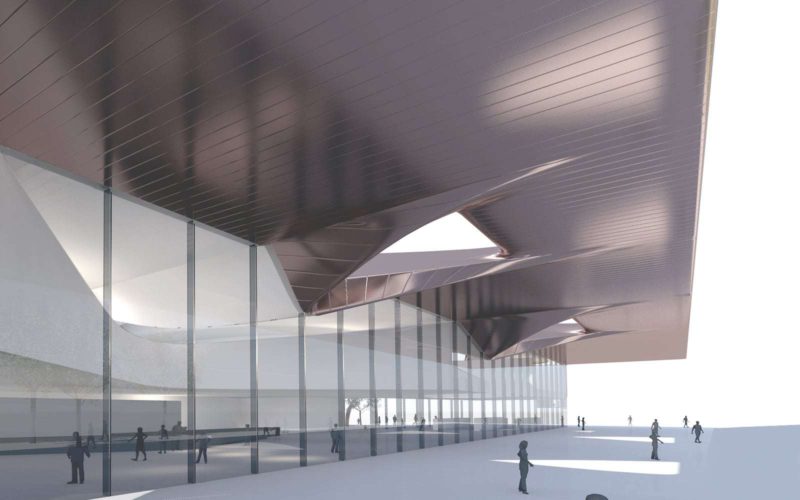
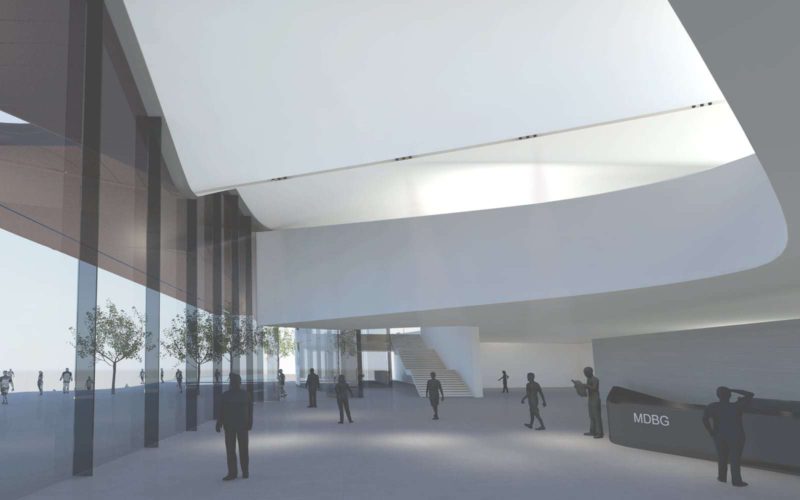
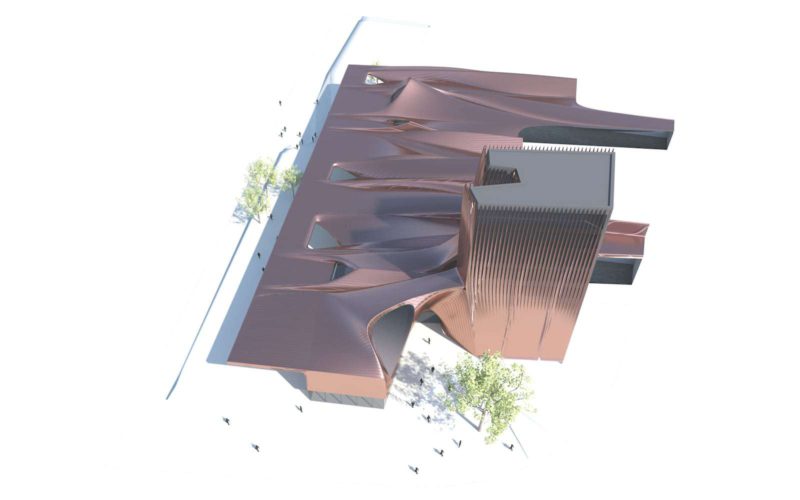
… to find a structure that mediates between the two opposites, the small scale structure of the development and the roofscape and the large scale horizontality of the river
… to generate this structure in such a way that it can both relate to the narrow gable fronts of the existing buildings by folds that resemble gables, but can also develop a large canopy roof facing the Danube and the ships that extends as far as the line of the Österreicherstadel and can shelter large areas of the weekly Danube market from the weather
… and to understand this structure as a roof structure whose various folds upwards depict the different room heights required for the permanent exhibition and whose downward folds – in an oscillating game played around the horizontal “zero line” described by the roof – can form loggias, viewing areas and “south light spouts” for the Danube market
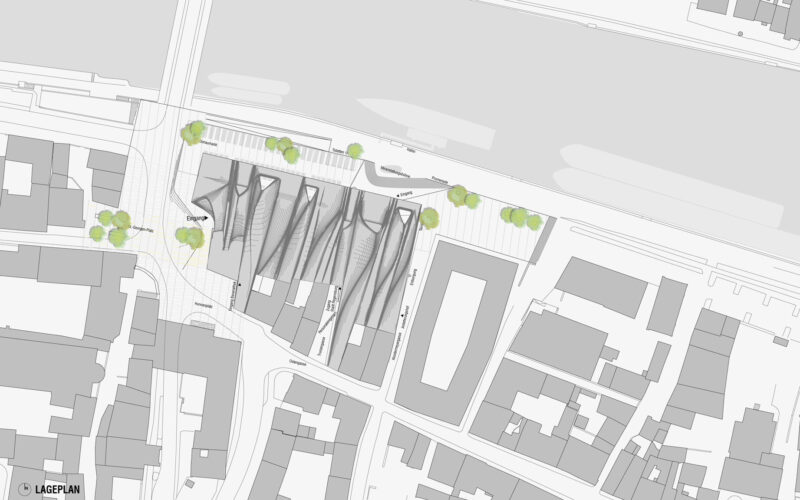
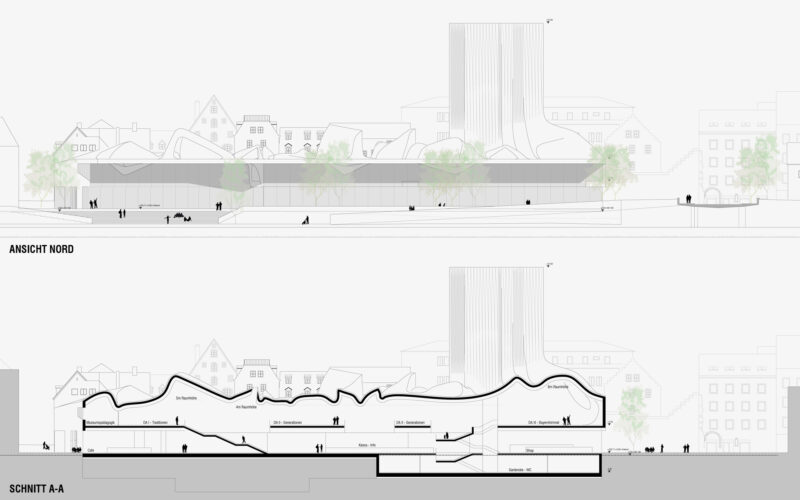
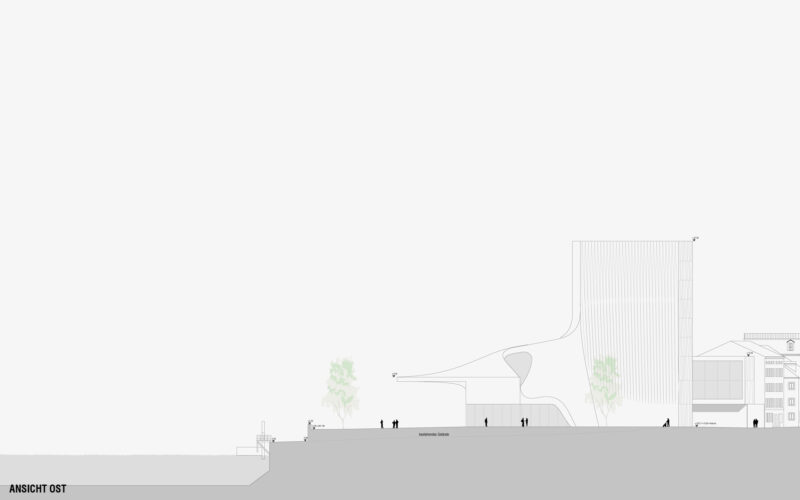
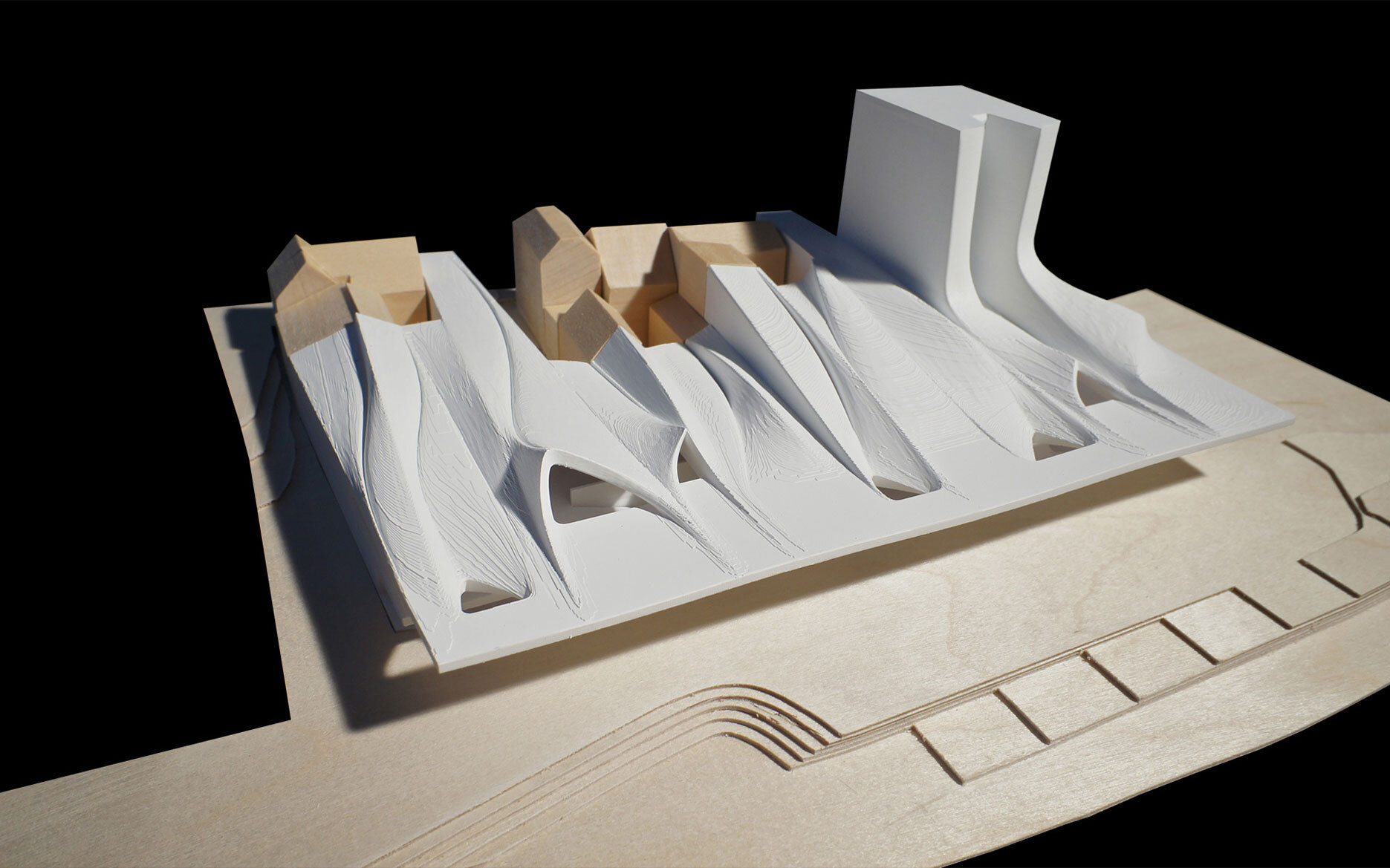
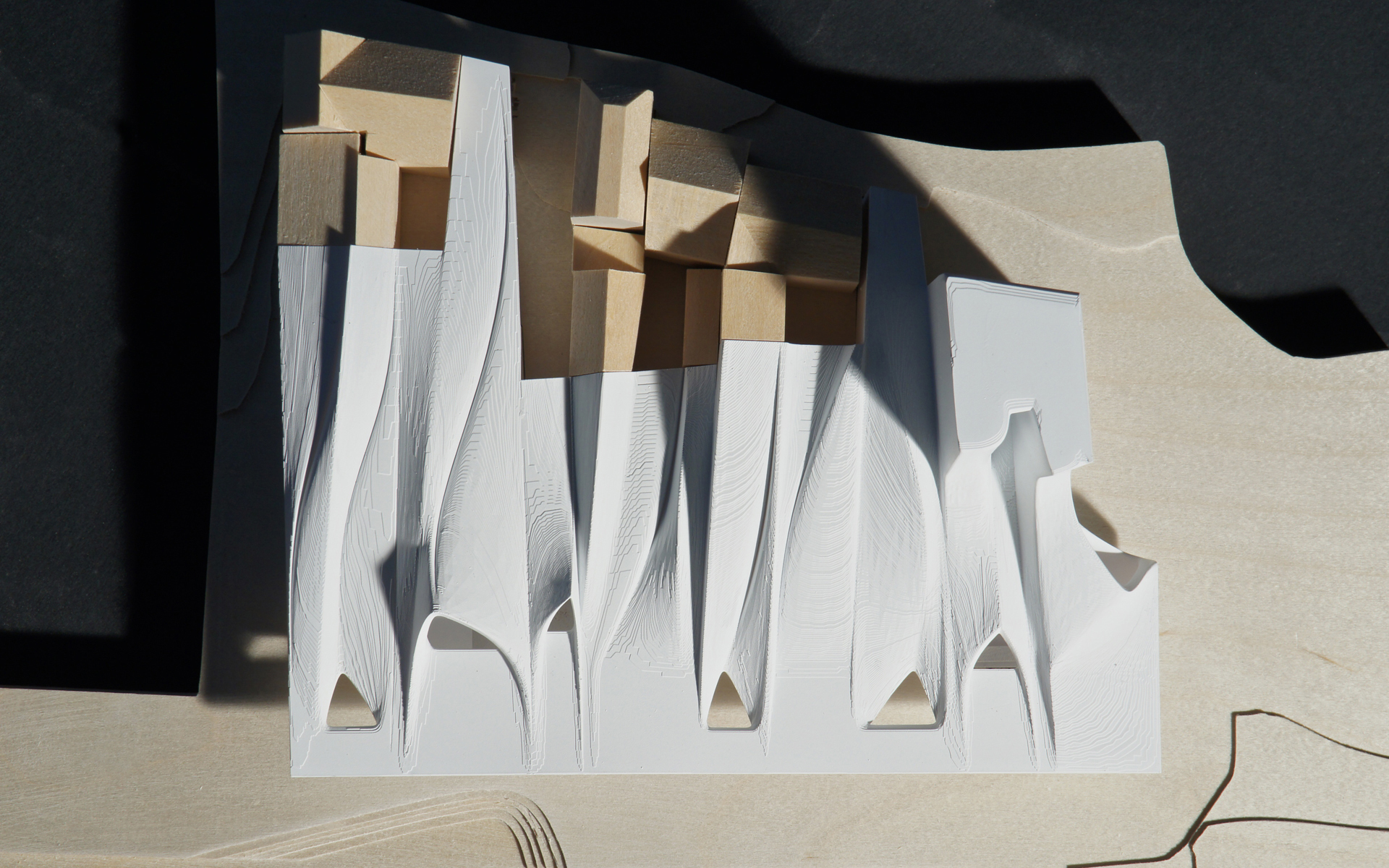
... to create a moderate height for the eaves line along the river bank that can preserve its upper edge despite the taller roofs behind needed to meet the requirements of the brief
… to design the museum with a diagonal route running through it so that it can be entered both from Hunnenplatz / St.-Georgen-Platz and also from the landing stage
… to accentuate these diagonals by means of views offered above the entrances, in particular the “view of the cathedral” for the “Bavarian sky“ and the view of the Danube
… to articulate the foyer as part of the river bank promenade through its openness and generosity and in this way to create space for movement and communication
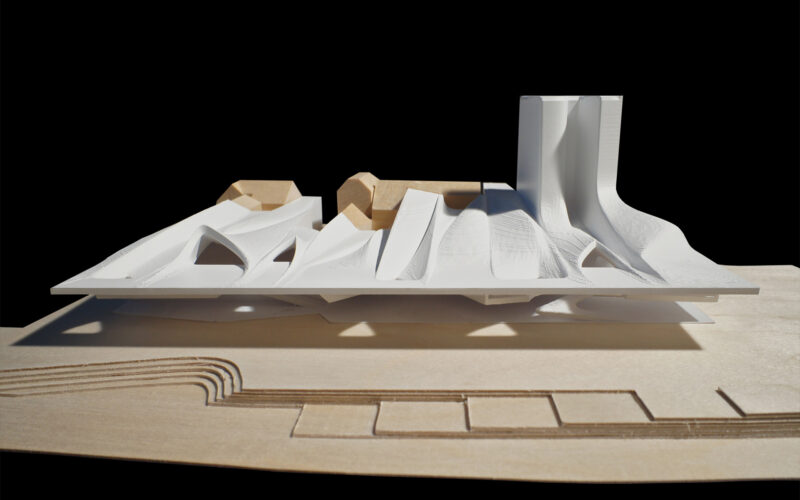
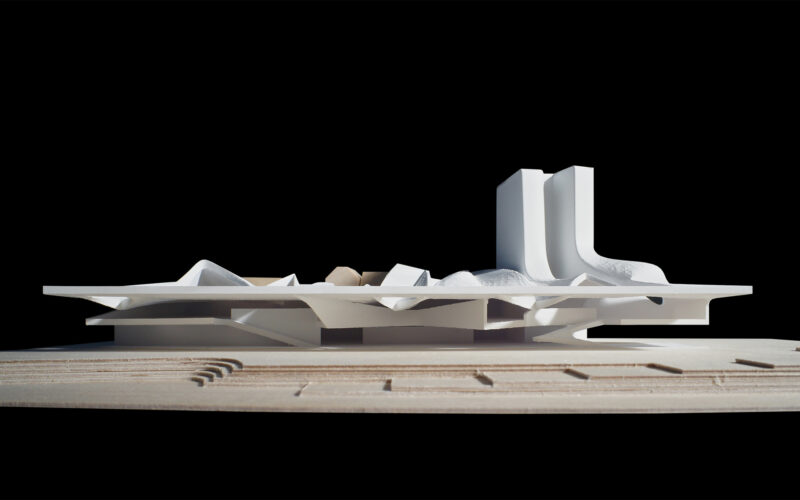
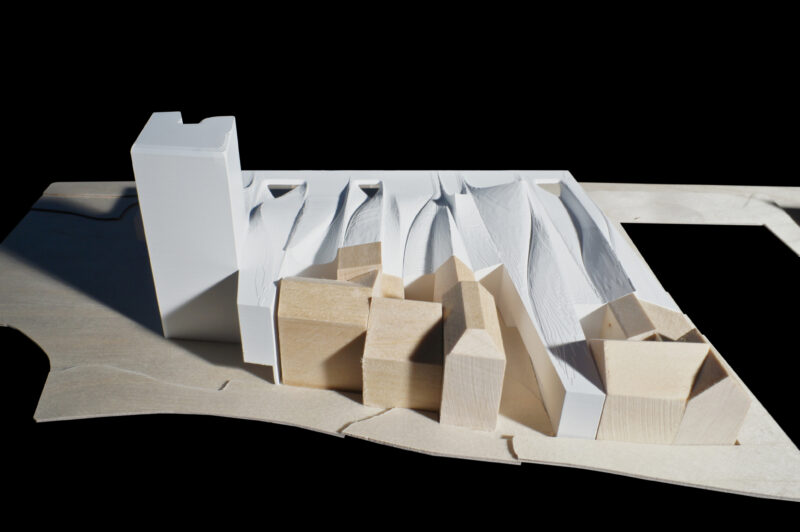
… to see the cubic display space, the Bavariathek and the administration as a “media tower”, freely developed out of the finely articulated roofscape yet a clear contrast to the Kolpinghaus and in this way to place a moderate but self-confident symbol in the overall context of the city that is appropriate to the museum’s significance
… to underscore the importance of the Bavariathek by creating a clearly identifiable address
… to emphasise the sequence of spaces Hunnenplatz / St.-Georgen Platz and to make facades onto both these squares
… to place an accent at the approach axes from the “Eiserne Brücke”, “Adolph-Kolping-Straße”, “Unter den Schwibbögen“ and at their point of intersection
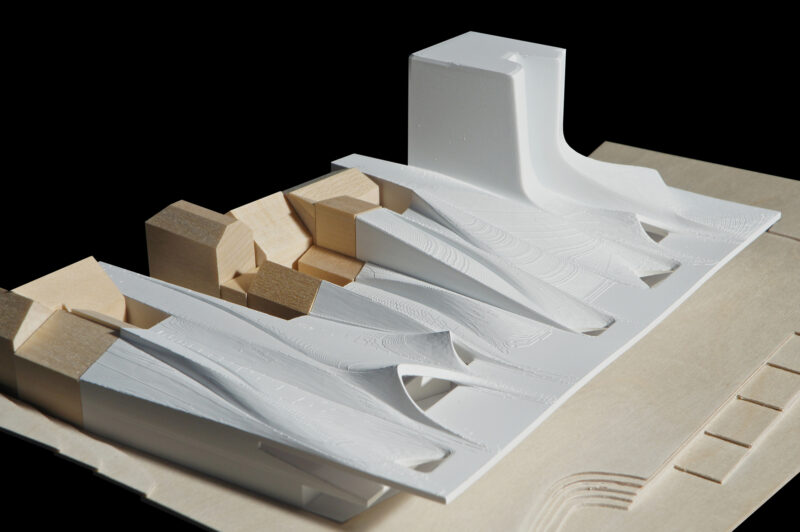
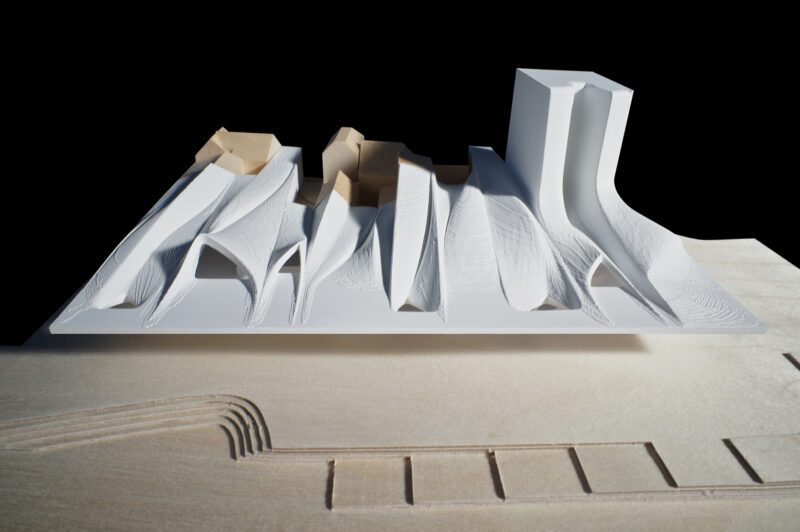
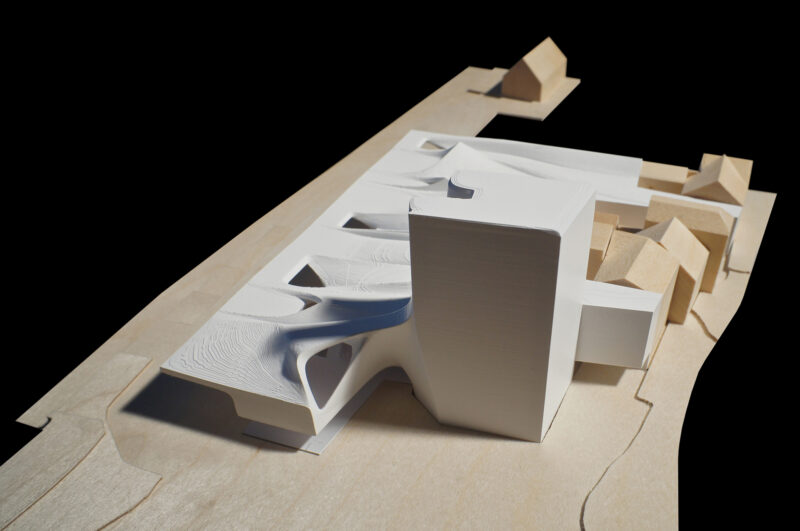
… to respond to the particular quality of the place with the Bavariathek – “Regensburg as a city of towers“ – and in this way to position the building within the city’s overall historical context
… to see the museum, despite all the complexity of its form, as a building that functions as simply as possible with coherent – but separable – areas for special exhibitions and events on the ground floor and a continuous , flexibly usable area for the entire permanent exhibition on the upper floor
Architecture
Project team
Christoph Degendorfer
Mario Gasser
Bartosz Lewandowski
Client
Staatliches Bauamt Regensburg
Building physics
Dr. Pfeiler GmbH, Graz
Hard facts
Start of planning: 2013
Usable floor area: 11.021,00 m²
Location: Regensburg, DE
Function: Museum
Scope: Open, single stage competition
Model
Harald Schmidt, Vienna
Renderings
Pichler & Traupmann Architects
Award
Recognition